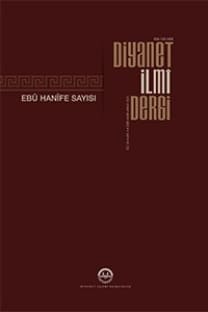SERAHSİ’DE İLİM-ZAN BAKIMINDAN ŞER’İ DELİLLER VE YORUMA YANSIMALAR
Serahsî delilleri, içerdiği bilginin karşı ihtimali bütünüyle bertarafedip etmemesi ölçütünden hareketle ilim gerektirenler, zan gerektiren--ler şeklinde tasnif eder. Kitap, mütevatir sünnet, Hz. Peygamber'den(s.a.s.) bizzat işitilen bilgi ve icmâ, ilim gerektiren delillerdir. Haber--iVâhidler, zan gerektirmekle birlikte gereğiyle amelde bulunmakVâciptir. Delillerin yorumlanması ve hüküm istinbadında zan gerekti--ren deliller, ilim gerektiren delillerin denetimine tabi kılınır. Bu meto--dik tavır, teâruzu'l--edille, tahsis, nesih ve nassa ziyâde gibi yorumşekillerinin tamamında belirleyicidir.
Certainty and Doubtfulness of Islamic Legal Sources According to Sarakhsi and Its Reflections on Interpretation
Sarakhsi classifies Islamic legal sources as either ‘certaintybearing’or ‘doubt-bearing’ based on Whether the information it containseliminates the opposite possibility or not. The Qur’an, collectivememory of prophetic practice (sunna mutawatira), knowledge obtaineddirectly from the Prophet (pbuh) and concensus (ijma) are legalsources that bear certainty (‘ilm). However, single reports (Khabaral-Wahid) need to be treated with doubt (zann) and it is compulsory(vajib) to act accordingly. During the interpretation of legal sourcesand extraction of legal rulings, legal sources that bear doubt are beingSarakhsi classifies Islamic legal sources as either ‘certaintybearing’or ‘doubt-bearing’ based on Whether the information it containseliminates the opposite possibility or not. The Qur’an, collectivememory of prophetic practice (sunna mutawatira), knowledge obtaineddirectly from the Prophet (pbuh) and concensus (ijma) are legalsources that bear certainty (‘ilm). However, single reports (Khabaral-Wahid) need to be treated with doubt (zann) and it is compulsory(vajib) to act accordingly. During the interpretation of legal sourcesand extraction of legal rulings, legal sources that bear doubt are being
